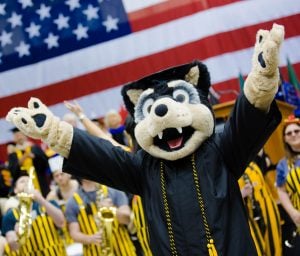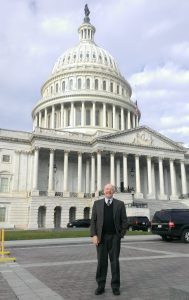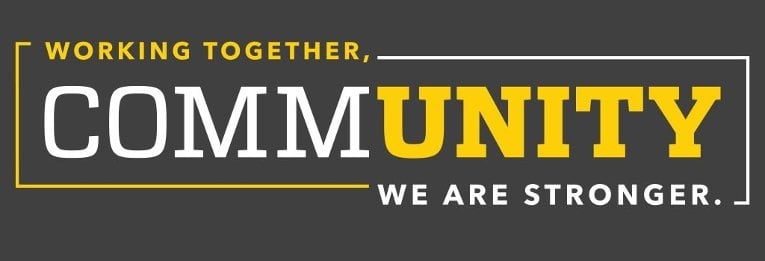 I am setting aside the draft of the column I was working on for this week, so that I can write a few words in response to the president’s executive order temporarily banning people from seven countries from entering the United States. This order has had an immediate and significant impact across all of American higher education, including Michigan Tech. The impact has both a humanitarian dimension, in terms of the damage it is doing to our international students, scholars, and their families, and a practical dimension, in terms of the research, scholarship, and enrollment at institutions of higher learning nationwide.
I am setting aside the draft of the column I was working on for this week, so that I can write a few words in response to the president’s executive order temporarily banning people from seven countries from entering the United States. This order has had an immediate and significant impact across all of American higher education, including Michigan Tech. The impact has both a humanitarian dimension, in terms of the damage it is doing to our international students, scholars, and their families, and a practical dimension, in terms of the research, scholarship, and enrollment at institutions of higher learning nationwide.
This past Wednesday the University Senate of Michigan Tech passed a “Sense of the Senate” resolution on this same issue. I am not a member of the Senate and thus cannot vote, but nevertheless I was at the meeting. I agree with the resolution and support it. In fact, it reflects my own thoughts well enough that I will simply use it here, verbatim.
The first sentence of the resolution mentions that the Senate is a non-political body. I also affirmed two weeks ago that I would not use this column as a forum for my own political views. This raises an interesting question – what exactly is political? If I were to advocate for a candidate or a political party in an election, that would be unambiguously political and I am not going to do it. However, if I respond to actions of our government, whose officials have already been elected, which has ramifications for me and my community, then we are in more of a gray area – made more gray by the fact that all of the actors are on one side of the political spectrum. Having pondered this a while, my position is this: commenting on issues of law and policy that affect me, my colleagues, our students, and what we do for a living every day, is not political. It is my right and my duty as a citizen and an academic leader at Michigan Tech. I am commenting on the issues, not the people who created them.
In what is given below, I have removed a couple of short paragraphs I consider more internal to Michigan Tech, messages from the Senate to the university administration. Again, my purpose here is to use the words prepared by Senate members that I find accurately and eloquently represent my own position.
Here then is the (slightly edited) Sense of the Senate resolution, adopted Wednesday, February 1, 2017:
“Resolution in Support of our International Colleagues and Students”
(Voting Units: Full Senate)
*Background*
The University Senate of Michigan Technological University acknowledges that it is a non-political body. However, when external political events have an impact on its constituents and on the academic life at Michigan Technological University, the Senate has the obligation to address the issues at hand.
*Rationale*
The Senate agrees that President Trump’s Executive Order “Protecting the Nation From Foreign Terrorist Entry Into the United States” causes severe distress among the international employees and students of Michigan Technological University, and has a serious negative impact on the academic life at the university. Examples of these are, but are not limited to, international faculty being unable or scared to travel to international conferences or conduct their international research, international students being unable or scared to participate in studies abroad, faculty and students being unable or scared to plan visits to family members abroad, distressed students in the classroom, and reduced scholarly output of the people impacted. This in turn will have serious adverse effects on Michigan Technological University’s academic productivity.
*Resolution*
The Senate recognizes that the international character of this workplace is an important strength of Michigan Technological University. Michigan Technological University is proud to be an inclusive workplace welcoming employees and students from all backgrounds.
The Senate expresses strong support to all employees and students affected by the above mentioned executive order. The Senate recognizes that the group of employees and students affected by the executive order ranges beyond those originating from the seven countries directly targeted by the executive order, and in fact has an impact on everyone in our university community, because when one group is targeted we are all made vulnerable.The Senate will work to guarantee that adverse affects stemming from this order, such as reduced international mobility, are not used against anyone impacted (for example in decisions on tenure and/or promotion).
The Senate supports President Mroz’s statement: “I can’t relieve the distress that many of you might be feeling as a result of this and other events of the recent past. But what I can say is that with your help, we can, and we will, as the Michigan Tech Community, advocate for respect, understanding and compassion in the way we treat each other regardless of our differences. We can and we will defend the Constitutional rights of all in the Michigan Tech community. And we can and we will treasure and protect the free and open exchange that is essential to scholarship, research and creativity. By remaining committed to these core values we can all help to ensure that Michigan Tech remains a community that is open to people from across our nation and around the world.”
– Dan
Daniel R. Fuhrmann
Dave House Professor and Chair
Department of Electrical and Computer Engineering
Michigan Technological University
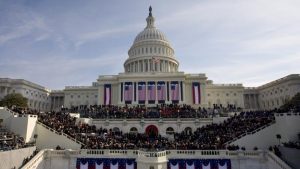 Well folks, here we are – January 20, 2017, the end of one remarkable era in American politics and beginning of a new one that promises to be even more remarkable.
Well folks, here we are – January 20, 2017, the end of one remarkable era in American politics and beginning of a new one that promises to be even more remarkable.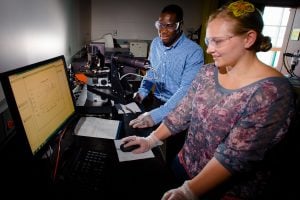 The ECE Department at Michigan Tech has a long and distinguished history in undergraduate education, having prepared over 8000 engineering students for meaningful careers since its inception in 1928. The times are changing, however, and Michigan Tech is changing as well. Some 40% of the engineering students in the United States now are graduate students, seeking MS and PhD degrees. Our programs have been evolving over the past 2-3 decades to respond to this changing demographic and to respond to the needs of the marketplace. Today our graduate programs are just as important in defining who we are and what we do as our undergraduate programs. This is not to say that we are building graduate programs just to respond to outside forces – in today’s world, a thriving academic engineering department is one in which undergraduate education, graduate education, and faculty-led research all co-exist in synergistic harmony.
The ECE Department at Michigan Tech has a long and distinguished history in undergraduate education, having prepared over 8000 engineering students for meaningful careers since its inception in 1928. The times are changing, however, and Michigan Tech is changing as well. Some 40% of the engineering students in the United States now are graduate students, seeking MS and PhD degrees. Our programs have been evolving over the past 2-3 decades to respond to this changing demographic and to respond to the needs of the marketplace. Today our graduate programs are just as important in defining who we are and what we do as our undergraduate programs. This is not to say that we are building graduate programs just to respond to outside forces – in today’s world, a thriving academic engineering department is one in which undergraduate education, graduate education, and faculty-led research all co-exist in synergistic harmony. Happy New Year once again to all the followers of the ECE Department at Michigan Tech! Best wishes for a happy, healthy, and productive 2017.
Happy New Year once again to all the followers of the ECE Department at Michigan Tech! Best wishes for a happy, healthy, and productive 2017.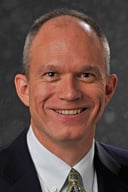 Dr. Paul Juodawlkis, assistant leader of the Quantum Information and Integrated Nanosystems Group at
Dr. Paul Juodawlkis, assistant leader of the Quantum Information and Integrated Nanosystems Group at  FWF is taking a break this week. The university has, for all intents and purposes, been shut down for the entire week, and yours truly has been spending holiday time with family and enjoying the many winter recreational opportunities this area affords. We will pick up again in January. Goodbye to 2016, and a very happy and productive 2017 to all!
FWF is taking a break this week. The university has, for all intents and purposes, been shut down for the entire week, and yours truly has been spending holiday time with family and enjoying the many winter recreational opportunities this area affords. We will pick up again in January. Goodbye to 2016, and a very happy and productive 2017 to all!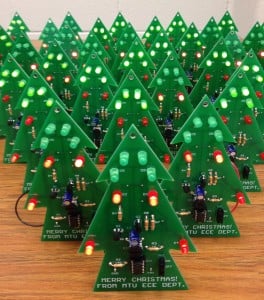 I wish I could say I wrote the poem below, but alas, all I did was look it up on the Internet. I don’t know what is more remarkable – that someone can be so creative that they can come up with stuff like this, or that we have created a world in which at 11pm the night before a column is due, one can search on “electrical engineering night before Christmas” and something like this instantly appears. Either way, I wish all the readers of this blog a joyous holiday season and the happiest of new years. Enjoy! – Dan
I wish I could say I wrote the poem below, but alas, all I did was look it up on the Internet. I don’t know what is more remarkable – that someone can be so creative that they can come up with stuff like this, or that we have created a world in which at 11pm the night before a column is due, one can search on “electrical engineering night before Christmas” and something like this instantly appears. Either way, I wish all the readers of this blog a joyous holiday season and the happiest of new years. Enjoy! – Dan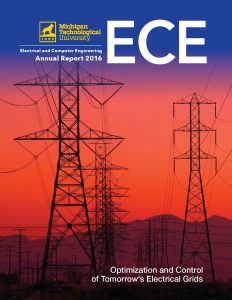 We are happy to share with you our newly released
We are happy to share with you our newly released 